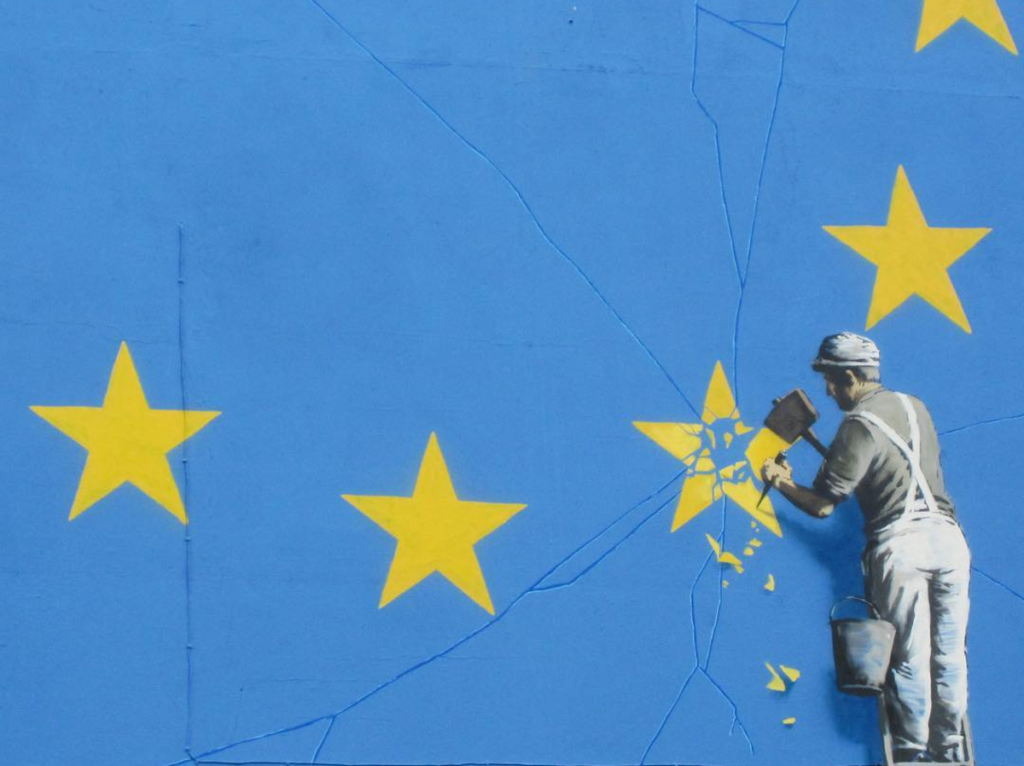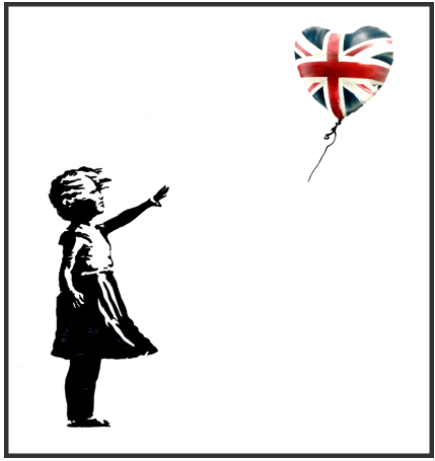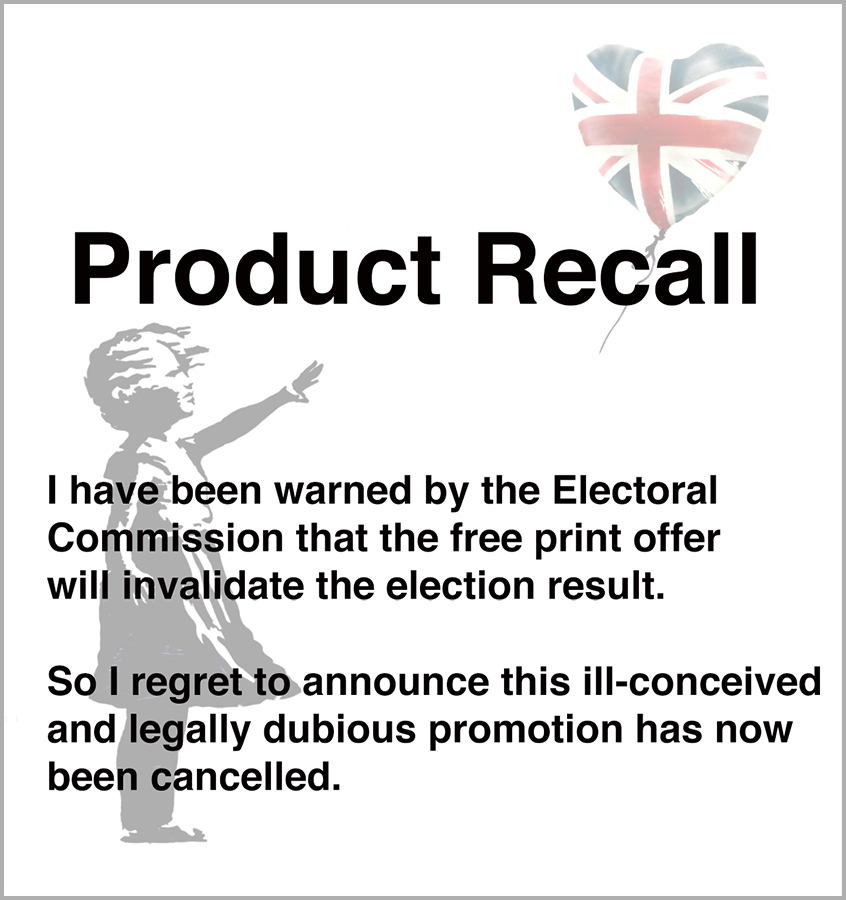Politics
Banksy’s Plan to Sway UK Voters With Free Art Got Nixed Because It Was Totally Illegal
Police suggest the artist's proposed giveaway would've been a "criminal" offense.

Police suggest the artist's proposed giveaway would've been a "criminal" offense.

Sarah Cascone

If it sounds too good to be true, it probably is—and it may also be a crime. At least that seems to be the case with Banksy’s proposed election art giveaway. UK citizens hoping to receive free artwork by the anonymous British street artist for voting against the Conservative Party in the June 8 general election will be disappointed to learn that the giveaway has been cancelled following a police investigation.
Banksy’s website has been updated to show the planned giveaway work with a note reading “Product Recall: I have been warned by the Electoral Commission that the free print offer will invalidate the election result. So I regret to announce this ill-conceived and legally dubious promotion has now been cancelled.”
The limited-edition free art, billed as an “exclusive new Banksy print” on “archival quality paper” was to be a new version of the artist’s iconic Balloon Girl stencil, the red heart balloon decorated with the Union Jack flag. Banksy has previously revamped the image to feature a girl in Muslim garb, in support of the people of Syria.

This is the free print that Banksy was promising to voters in certain constituencies who vote against the Conservative candidates. Courtesy of Banksy.
Police in Avon and Somerset said in a statement that they had received “a number of complaints” following the announcement of the giveaway.
“It is a criminal offense under the Representation of People Act 1983 for any voter to accept or agree to accept a gift or similar in return for voting or refraining from voting,” added a spokesperson. “Any person participating in an offer to receive a gift is at risk of being prosecuted.”
Banksy’s initial announcement had encouraged voters from six districts in his home city of Bristol to share a photo of their ballot paper opposing the Conservative incumbent in exchange for a complimentary gift to be sent by mail. (British law doesn’t explicitly outlaw polling booth photography, but the Electoral Commission does advise against it.)
“This print is a souvenir piece of campaign material, it is in no way meant to influence the choices of the electorate, has no monetary value, is for amusement purposes only and is strictly not for resale,” read a “lawyers note” accompanying the giveaway notice.

The announcement posted on Banksy’s website cancelling the election art giveaway. Courtesy of Banksy.
In the UK, attempting to influence a voter’s decision is an offense known as treating. Of course, given Banksy’s penchant for the satirical, and for high-profile stunts, it seems possible the artist’s offer was never serious.
“It’s a great piece of PR generating him even more publicity for his activities,” Mick Temple, a Staffordshire University journalism and politics professor, told Breaking News. “As with much of his artwork, it borders on the anti-social, potentially unlawful sphere of behavior.”